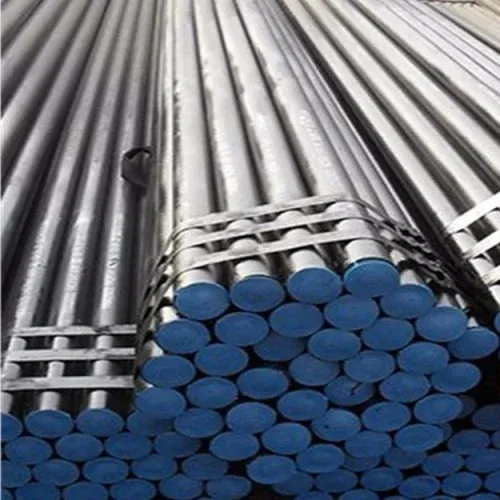-
Cangzhou Yulong Steel Co., Ltd.
-
Phone:
+86 13303177267 -
Email:
admin@ylsteelfittings.com
- English
- Arabic
- Italian
- Spanish
- Portuguese
- German
- kazakh
- Persian
- Greek
- French
- Russian
- Polish
- Thai
- Indonesian
- Vietnamese
- Zulu
- Korean
- Uzbek
- Hindi
- Serbian
- Malay
- Ukrainian
- Gujarati
- Haitian Creole
- hausa
- hawaiian
- Hebrew
- Miao
- Hungarian
- Icelandic
- igbo
- irish
- Japanese
- Javanese
- Kannada
- Khmer
- Rwandese
- Afrikaans
- Albanian
- Amharic
- Armenian
- Azerbaijani
- Basque
- Belarusian
- Bengali
- Bosnian
- Bulgarian
- Catalan
- Cebuano
- China
- China (Taiwan)
- Corsican
- Croatian
- Czech
- Danish
- Esperanto
- Estonian
- Finnish
- Frisian
- Galician
- Georgian
- Kurdish
- Kyrgyz
- Lao
- Latin
- Latvian
- Lithuanian
- Luxembourgish
- Macedonian
- Malgashi
- Malayalam
- Maltese
- Maori
- Marathi
- Mongolian
- Myanmar
- Nepali
- Norwegian
- Norwegian
- Occitan
- Pashto
- Dutch
- Punjabi
- Romanian
- Samoan
- Scottish Gaelic
- Sesotho
- Shona
- Sindhi
- Sinhala
- Slovak
- Slovenian
- Somali
- Sundanese
- Swahili
- Swedish
- Tagalog
- Tajik
- Tamil
- Tatar
- Telugu
- Turkish
- Turkmen
- Urdu
- Uighur
- Welsh
- Bantu
- Yiddish
- Yoruba

Nov . 17, 2024 07:49 Back to list
Exploring the Potential of Pipe Systems in Modern Infrastructure Development
The Versatile World of Pipes Beyond Functionality
Pipes, often taken for granted as mere conduits for liquids and gases, play a crucial role in various facets of modern life. From the plumbing in our homes to intricate industrial systems, the evolution of pipe technology has had a profound impact on how we harness and utilize resources. This article explores the multifaceted world of pipes, highlighting their significance and the innovations surrounding them.
At its most fundamental level, a pipe is a hollow cylinder designed to transport substances. Commonly made from materials such as metal, plastic, or concrete, pipes can be designed to accommodate different types of fluids, including water, oil, and even air. In residential settings, pipes are integral to plumbing systems, providing the flow of freshwater and the disposal of waste. The effectiveness of these systems is often determined by the type of materials used and the engineering behind their layout.
In the realm of industry, pipes take on an even more critical role. The oil and gas industry, for example, relies heavily on pipelines to transport crude oil from extraction sites to refineries and distribution centers. These pipelines can span thousands of miles and must withstand extreme pressures and environmental conditions. Innovations in pipe technology, such as corrosion-resistant materials and advanced monitoring systems, are continually improving the safety and efficiency of these vital infrastructures.
pipe

Beyond their conventional uses, pipes have also found their place in cultural practices and artistic expressions. Take, for example, the tobacco pipe, which has a rich history and cultural significance in various societies. Used for centuries as a means of socialization and ritual, tobacco pipes are often intricately designed and crafted, reflecting the artistry and heritage of different cultures. Similarly, in the realm of music, instruments such as flutes and organs utilize pipes to create sound, illustrating yet another dimension of the versatility of this simple cylindrical structure.
Sustainability is becoming an increasingly important consideration in the production and use of pipes. As the world grapples with climate change and resource scarcity, the emphasis is shifting towards using sustainable materials and technologies in pipe manufacturing. Innovations such as biodegradable pipes and systems that recycle wastewater exemplify how the industry is evolving to meet environmental challenges.
Moreover, the advent of smart technology is revolutionizing how we interact with and manage pipe systems. With the integration of Internet of Things (IoT) devices, pipes can now be equipped with sensors that monitor flow rates, detect leaks, and provide real-time data to optimize usage. This not only helps in conserving water and energy but also ensures that maintenance can be conducted proactively rather than reactively.
In conclusion, while pipes may seem like basic components of everyday life, their impact is significant and far-reaching. From the plumbing in our homes to the pipelines that fuel our industries, their versatility is remarkable. As technology advances, the future of pipes looks promising, with innovations aimed at sustainability, efficiency, and enhanced functionality. The next time you turn on a faucet or hear the sound of a distant train, take a moment to appreciate the humble pipe and its indispensable role in our world.
Latest news
-
ANSI 150P SS304 SO FLANGE
NewsFeb.14,2025
-
ASTM A333GR6 STEEL PIPE
NewsJan.20,2025
-
ANSI B16.5 WELDING NECK FLANGE
NewsJan.15,2026
-
ANSI B16.5 SLIP-ON FLANGE
NewsApr.19,2024
-
SABS 1123 FLANGE
NewsJan.15,2025
-
DIN86044 PLATE FLANGE
NewsApr.19,2024
-
DIN2527 BLIND FLANGE
NewsApr.12,2024
-
JIS B2311 Butt-Welding Fittings LR/SR 45°/90° /180°Seamless/Weld
NewsApr.23,2024











